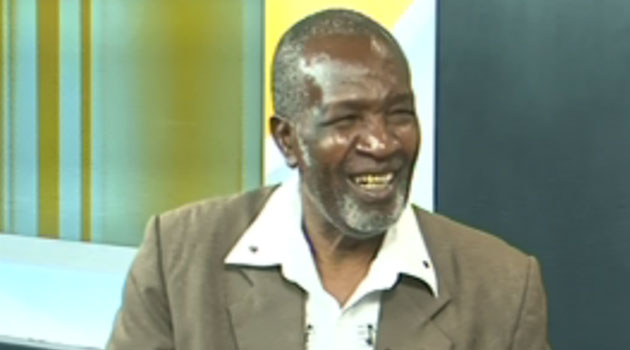Many things have been said about Gikuyu’s veteran pop Benga artist Joseph Kamaru.

While some describe him as the slowly fading pop of Gikuyu artist, others credit him for having paved way for Gikuyu Benga music making it acceptable when many locals hardly appreciated vernacular local music.
Meet 77- year-old Joseph Kamaru a local music legend whose debut into music was received in unique fashion.
When Joseph Kamaru’s Darling ya mwarimu was released in 1966, Knut called a nationwide teachers’ strike, parliament debated the controversial song and it took the intervention of President Kenyatta to cool down tempers. A musician of rare talent had been born.

Today Joseph Kamaru’s music may not currently be on top of the music charts and his once thriving River Road music shop may be no more. But one thing is without doubt; his lyrics, both original and remixes, still enjoy a good audience locally and even abroad.
Despite his grey hair and beard, he looks a decade less than his 77 years, and his energy level would put far younger people to shame.
Today the man who told truth to power more than once
— looks back on his eventful life and recalls the turning point.
One evening in 1965 he was listening to the radio when he heard Mwangi wa Gachau’s classic Mbeca Ithiragira Urakua; it changed his life.

“I am going to play a better song than this one, and it will also be played on radio,” he told his sister, Catherine Muthoni, who was sitting with him.
Forty-four years later he has not only composed dozens of hit songs but is a living legend on
the Kenyan music scene, sought out by musicologists and scholars doing research on Kenyan music and Kikuyu culture.
Some of his own classics are Ndari ya Mwalimu, a reflection of affairs between wayward teachers and pupils; Tiga Kuhenia Igoti (Don’t lie to the court), a tale of sexual harassment involving rape nearly 30 years before it became the subject of public debate; and Nuu Ucio, a deft insight into the issue of promiscuity in the 1980s long before it gained public prominence
Countless songs
https://www.youtube.com/watch?v=KBZWDM5bFpg
He is not quite sure how many songs he has recorded but estimates there could be more than 1,000, some of them never released.
His journey began in Kangema, Murang’a, where he attended primary school, leaving in 1957 for a tough life on Nairobi’s mean streets where he peddled everything from Suta capsules to vegetables.
His first formal job was working as a house-help and a nanny, and it paid him Sh180 a month, enough to put his sister through a commercial typing course and buy himself a guitar. But after hearing the Mwangi wa Gachau song, he never stopped believing he would one day become somebody.
His music opened the way into elite circles and, for a time, he enjoyed a special relationship with Presidents Jomo Kenyatta and Daniel Moi. But he fell out with both over matters of principle.
https://www.youtube.com/watch?v=iJpAYPrbpRk&list=PL4QH-B73DYrHTiEH9YpKmr6b9iNvk_ABV
“I was an artiste through and through and defended my constituency, writing songs that reflected the mood of the times,” he recalled in an interview.
ventually the words to his songs fell afoul of the two leaders; he was banished and began to receive death threats.
Martin Dunford, the chairman of the Tamarind Group that owns the Carnivore, remembers watching as hundreds of Nairobi night owls who were seeing Kamaru perform live for the first time dance on the tables, intoxicated as much by the music as the traditional brew muratina.
What he called “one of our best nights ever” was to open the venue to Kenyan music and, more significantly, to an African public, setting the stage for its transformation into a meeting place for a mixed liberal urban audience.

The 1975-85 period clearly represents Kamaru’s best years marked by a string of hits and a live band that was one of the best in the business. That success was only enhanced by the release of the adults-only cassettes, all dealing with Kikuyu folk songs, most of which were as explicit as they could possibly be.
“I did it to preserve the songs as cultural material and performed them as close to the original as possible,” he said.